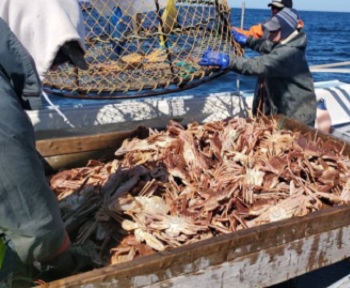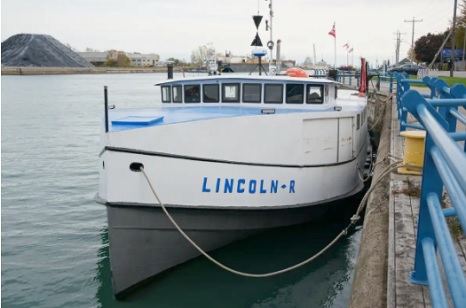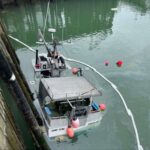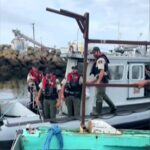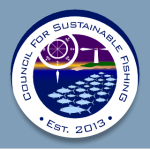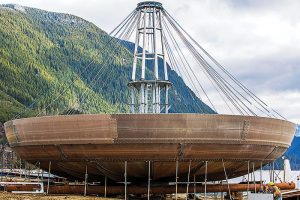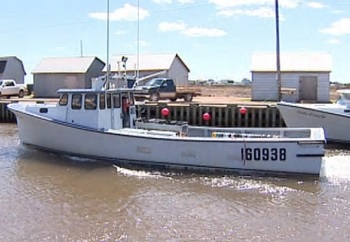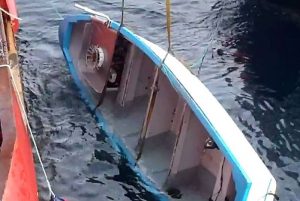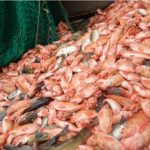Tag Archives: canada

Flawed rescue? – Franklin D. Roosevelt asked for plans for a low dam. Joe Biden wants windmills
“The federal role in damming the Columbia tied in well with the New Deal belief that the government should stimulate economic recovery by putting people to work and encouraging the creation of public utilities,” records a National Park Service history of the river’s Grand Coulee dam. “Franklin D. Roosevelt, elected president of the United States in 1932, asked for plans for a low dam with foundations strong enough to support a higher dam later, one that would back water up to the Canadian border.” (President Joe Biden’s efforts to grow offshore wind) No thought was given to the river’s salmon. “Of all the impacts that caused extinctions of  Columbia River Basin salmon and steelhead, dams were the most significant. “The dam wiped out runs that spawned in tributaries that drained into the Columbia from that point, river mile 596, to the headwaters, a distance of 645 river miles. Adding the tributary miles where salmon spawned nearly doubled the distance. >click to read< 14:36
Columbia River Basin salmon and steelhead, dams were the most significant. “The dam wiped out runs that spawned in tributaries that drained into the Columbia from that point, river mile 596, to the headwaters, a distance of 645 river miles. Adding the tributary miles where salmon spawned nearly doubled the distance. >click to read< 14:36
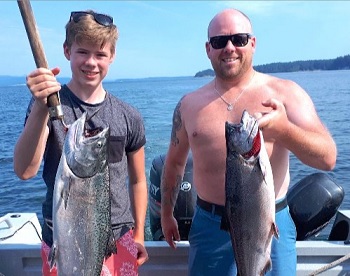
Should DFO rein in sport fishing to help save salmon?
Conservation groups want Ottawa to dramatically curtail the recreational fishery as it did with the commercial fishery last week in order to save wild salmon on the West Coast. But the sport sector, equally keen to protect the prized but diminishing chinook salmon, wants Fisheries and Oceans Canada (DFO) to make sure any further measures and restrictions this year are backed by science, and provide stability and results for the embattled fishers and the fish population. The federal government failed to address the recreational fishery, which also impacts salmon returns, despite making historic and dramatic reductions to the commercial fleet on the West Coast, said Jeffery Young, science and policy analyst with the David Suzuki Foundation. >click to read< 08:47
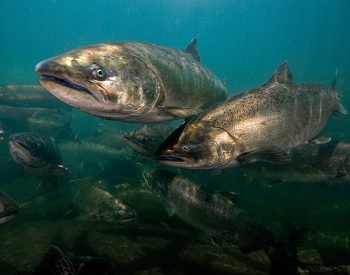
Survivor: Salmon Edition
In 2020, COSEWIC designated seven chinook populations in southern British Columbia as either endangered or threatened. Much the same is true in the Columbia River watershed in the northwestern United States, where chinook populations may have lost more than one-third of their genetic diversity. More worrying still, the rate of young salmon returning as adults to rivers from California to Alaska over the past half-century has plummeted to one-third of earlier levels. It’s a picture that puzzles many researchers. A myriad of variables impact salmon survival and it takes time and research to untangle them. Land use, from mining to damming and irrigation, for example, has affected chinook stocks in the Pacific Northwest at critical life stages, but it can’t be blamed for what’s happening in the northern latitudes. >click to read< 09:05
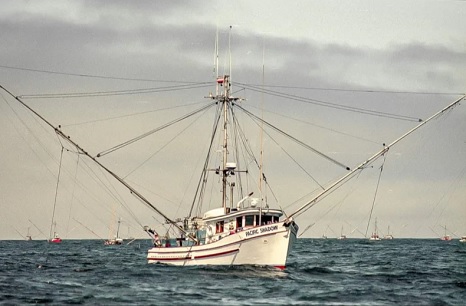
On the Brink of Extinction: DFO salmon closures sink dreams of Pacific fishermen
Geoff Millar’s livelihood is on the brink of extinction after DFO closed roughly 60 per cent of B.C.’s commercial salmon fisheries. The closures, DFO stated, will last “multiple generations” of fish to save tumbling salmon populations. The decision leaves Millar, along with hundreds of other commercial fish harvesters on the B.C. coast, in despair and in difficult financial straits. “These closures have absolutely devastated us,” affirmed James Lawson, a Heiltsuk fish harvester based in Campbell River, B.C.,, “We’ve been forced into a corner, and the only option is retirement, that seems to be DFO’s goal.” >click to read< 07:35
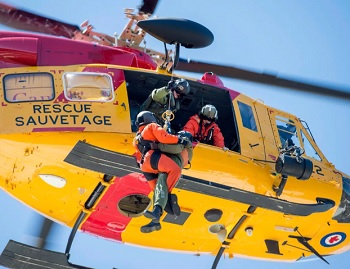
Canada has a Helicopter problem. Fed plan to upgrade choppers is,,, ‘unaffordable’?
The Liberal government announced plans to refurbish the CH-149 Cormorant fleet to keep the 14 aircraft flying and saving lives until 2042. It chose to sole-source the project with European aircraft manufacturer Leonardo. Defence Minister Harjit Sajjan announced that an additional two helicopters would be added to the fleet. But newly-released DND docs show that the company came back with a sky-high cost estimate,,, The document did not cite the cost estimate. Just over $1.03 billion had been set aside by defence planners,,, Department awarded the contract before negotiating price,,, >click to read< 13:50
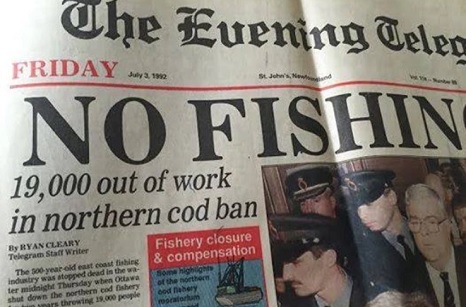
29 years of northern cod moratorium have cost NL at least $26 billion
In his 1992 book, No Fish and Our Lives, Some Survival Notes for Newfoundland, Cabot Martin wrote that a rebuilt northern cod stock could support annual harvesters of 400,000 tonnes (881 million/lbs).The moratorium remains the biggest layoff in Canadian history, and while there’s a small-scale inshore stewardship fishery, Fisheries and Oceans does not set a total-allowable catch (TAC), and it’s not considered a full-fledged commercial fishery. Where are we today? All three commercial cod stocks adjacent to Newfoundland and Labrador are categorized by DFO scientists as in the critical zone, meaning removals are to be kept to a minimum. >click to read< – 25 Years ago Today – The Northern Cod Moratorium – Sunday, July 2, 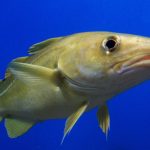 marks a quarter of a century since then federal fisheries minster John Crosbie announced what was planned to be a two-year moratorium on the northern cod fishery. It continues on today, though it has often seemed lost in the wake of a lucrative crab and shrimp fishery that remarkably saved the industry and many communities. But back in 1992, a province settled and built on the back of the mighty cod fishery, >click to read< 11:20
marks a quarter of a century since then federal fisheries minster John Crosbie announced what was planned to be a two-year moratorium on the northern cod fishery. It continues on today, though it has often seemed lost in the wake of a lucrative crab and shrimp fishery that remarkably saved the industry and many communities. But back in 1992, a province settled and built on the back of the mighty cod fishery, >click to read< 11:20
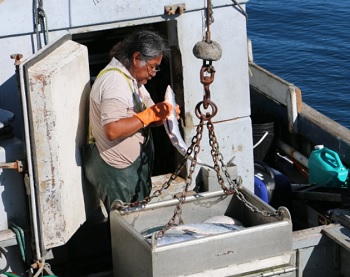
Feds told again to allow Indigenous commercial fisheries
Canada must stop controlling how five First Nations in B.C. harvest and sell salmon, halibut, and dozens of other marine species, a B.C. court has ruled. The decision marks the end of a 15-year legal battle waged by the federal government to prevent the Nuu-chah-nulth Nations, a coalition of five First Nations on the west coast of Vancouver Island, from reclaiming their traditional commercial fisheries decimated by colonial policies. “We are just trying to establish a commercial fishery that provides income to the families,”, “That’s the message we’ve been trying to give DFO as the Mi’kmaq fisheries on the East Coast have tried to do as well.” >click to read< 09:35

The Escuminac Hurricane capsized 22 fishing boats off the coast of New Brunswick
Between June 18 and 21, 1959, an Atlantic hurricane caused one of New Brunswick’s worst fishing-related disasters. The incident, called the 1959 Escuminac disaster, killed 35 people and caused US$2.5 million worth of damage. On June 18, the storm developed in the Gulf of Mexico. On the same day, it hit Florida and strengthened into a tropical storm. The storm reached hurricane strength on June 19 but was turned into an extratropical cyclone the same day. The storm’s remnants hit Atlantic Canada before dissipating on June 21., In Atlantic Canada, around 45 boats were in the Northumberland Strait when the storm was approaching. They didn’t have radios to receive warnings. The rough water caused at least 22 fishing boats to capsize. >click to read< 14:50
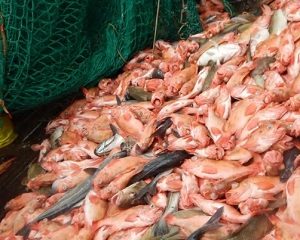
Canada adds warm-water fish to list of species monitored in DFO summer trawl survey off East Coast
Several warm-water fish species were added to the annual summer research vessel survey off the coast of Eastern Canada in 2020.,, Monitoring for the blackbelly rosefish, john dory, trigger fish, tilefish fish, dusky shark and others was included in the DFO summer trawl survey along the Scotian Shelf and Bay of Fundy for the first time last year. It was done at the request of the commercial fishing industry, which is capturing them accidentally, called bycatch, but cannot land them because they are not included in any Canadian commercial fish licence conditions. That doesn’t make sense to Alain d’Entremont, president and CEO of Scotia Harvest,,, “I think that if they are groundfish species and we are catching them as part of our regular fishing, then there should be mechanisms for us to be able to land them,,, >click to read< 16:55
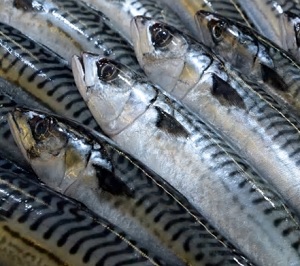
Canada cuts Atlantic mackerel quota in half to ‘rebuild stock’, to be released in two phases to ensure access
Canada has slashed the quota in half for Atlantic mackerel, from 8,000 tonnes last year to 4,000 tonnes this year. “This is a difficult decision that has economic impacts on commercial harvesters and their communities, but the science is clear: stronger actions need to be taken to rebuild the Atlantic mackerel stock,” said Federal Fisheries and Oceans Minister Bernadette Jordan in a news release Friday. That will help ensure fishermen in Newfoundland, where mackerel arrive later in the year, get access to some quota. >click to read< 08:03

The last cowboys – a replay of the story of cattle in the American West
Norway, a country less than a quarter the size of Alaska, is on pace to bring 1.2 million tonnes of salmon to market this year, and the technologists in that country are talking about the potential to grow their production to 3 million tonnes per year by 2030. Chile, Scotland, the Faroe Islands, and Canada are all significant producers with lesser production in Australia, New Zealand, Iceland, France, Ireland and Finland. Meanwhile, land-based, recirculating aquaculture systems (RAS) farms are threatening to lead to an explosion in salmon aquaculture almost everywhere. To truly understand the threat these farmers pose to the future of one of Alaska’s oldest and still largest industries,,, >click to read< 08:52
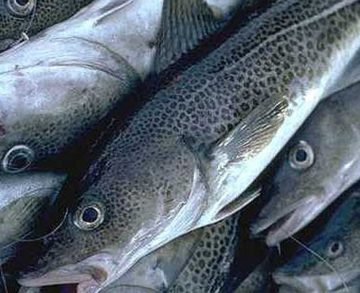
Fishermen should be listened to
It’s a typical story of David versus Goliath,,, That appears to be the case as prawn fishers on the Island take a stand against what looks to me to be an arbitrary and bureaucratic decision by the Department of Fisheries and Oceans Canada to change regulations regarding the harvesting of spot prawns, which now makes the sale of frozen-at-sea spot prawns illegal. Thanks to the efforts of many, has agreed to conduct an emergency review of 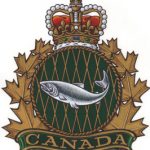 the regulations and, hopefully, common sense will prevail and the new rules will be reversed. Unfortunately, that kind of common sense just didn’t appear to exist in DFO when the northern cod stocks collapsed off Canada’s east coast in the early 1990s. >click to read< 07:25
the regulations and, hopefully, common sense will prevail and the new rules will be reversed. Unfortunately, that kind of common sense just didn’t appear to exist in DFO when the northern cod stocks collapsed off Canada’s east coast in the early 1990s. >click to read< 07:25
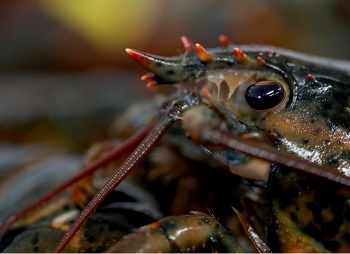
The lobster population in Canada’s most important harvesting area is healthy and is not overfished
The 20,000-square-kilometre fishing ground off southwestern Nova Scotia and into the Bay of Fundy, known as Lobster Fishing Area 34, accounts for 20 per cent of all lobster landed in Canada and 10 per cent of North American landings. “The stock is considered to be in the healthy zone. Furthermore, as the relative fishing mortality is below the removal indicator in all four survey indices, overfishing is not occurring,” the report concluded. The latest assessment, which ended in 2019, used commercial landings and several independent trawl surveys to evaluate the stock status. >click to read< 09:50
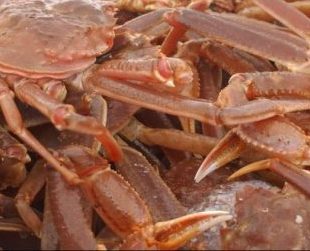
Snow crab market heats up with Record-Breaking Prices in northern Cape Breton
Soaring demand from the U.S. has resulted in snow crab coming in at over $8 a pound. The price was closer to $4.25 this time last year. Dave Donovan fishes out of Neils Harbour on board the Krista & Megan. “Eight dollars is a big bonus,” he said. “I guess it’s the best price I’ve ever seen since I’ve been in the fishery.” Donovan said the hot market this year is welcomed by all on the wharf, and in the processing plant. The high price is a surprise to Osborne Burke, “We didn’t anticipate this,” >click to read< 14:14

Volunteers continue search for missing Elsipogtog fisherman
A large-scale search is underway for any evidence of the Tyhawk fishing vessel or its missing captain. The New Brunswick based boat, owned by the Elsipogtog First Nation, sank off the coast of Cape Breton, N.S. earlier this month. Now friends and family from Mi’kmaq communities in both provinces are pooling their resources and raising money to try and find the boat’s captain, Craig Sock. Volunteer Starr Paul of the Eskasoni First Nation in N.S., said a search team is in Chéticamp, N.S. scouring the shoreline and the water for any evidence of Sock, who was known as Jumbo. Four of the six crew members on the vessel were rescued after it took on water and capsized on April 3. Seth Monahan died and Jumbo was later declared missing and presumed dead. >click to read< 10:18
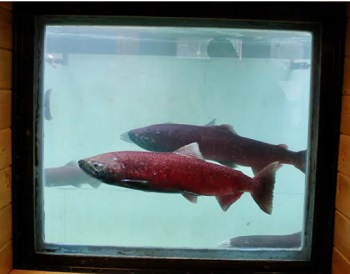
2021 Yukon River Chinook salmon run will likely be small, according to forecast
Somewhere between 42,000 and 77,000 Canadian-origin fish are anticipated to make the journey from the Bering Sea this year, Alaska and Yukon experts told attendees during the Yukon River Panel’s pre-season meeting on Tuesday. The most likely run size would be 57,000, they said. That’s smaller than the pre season outlooks for 2020 and 2019, and both those years ended disastrously when it came to getting enough salmon across the border. Under an international treaty, Canada and the U.S. are supposed to work together to ensure at least 42,500 fish make it to their spawning waters in Yukon. That spawning escapement goal hasn’t been met since 2018, last year only about 33,000 Chinook made it. >click to read< 13:21
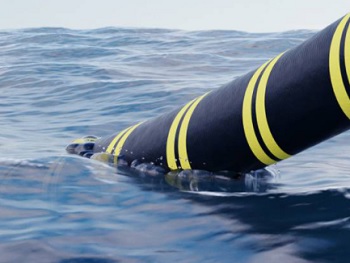
Undersea cable owner seeks injunctions against trawler operators
The owners of two transatlantic communication under sea cables are seeking High Court injunctions preventing fishing boat owners from trawling near their property. The action has been brought by GTT Communications Inc and related entities Hibernia Express Ireland Ltd and Hibernia Atlantic Cable System Limited which run between Ireland, the UK, and Canada. The companies claim that the owners of several fishing vessels have been trawling in the waters near the cables. This it is claimed, poses a high risk of damage to the cables. >click to read< 14:06
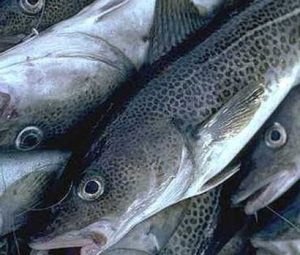
The flawed plan to rebuild Canada’s Northern cod – DFO’s plan is riddled with science and policy weaknesses
Canada is on the cusp of an inauspicious anniversary. Next year will mark 30 years since Newfoundland’s 500-year-old Northern cod fishery was shut down. The fishery was closed on July 2, 1992, because of a massive decline in the cod population, as much as 95 per cent, between the early 1960s and the early 1990s. The socioeconomic consequences were staggering: 30,000 to 40,000 jobs vanished overnight. Closure of what once was the largest cod fishery in the world stimulated an exodus of 10 per cent of the province’s population by the turn of the 21st century. Resource depletion was not anticipated when the federal Fisheries Act was passed in 1868. >click to read< 06:25
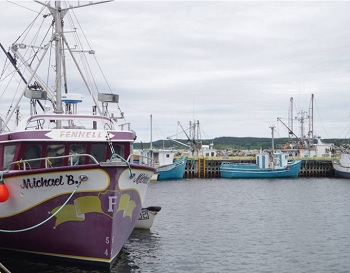
A heritage plundered and abandoned – 70 years of complicity from Canadian governments
My Feb. 20 letter to the editor, “A heritage plundered and abandoned,” attempted to show how governments have allowed our fishing industry to be destroyed, because an armada of modern foreign fishing fleets were permitted unregulated access to the Grand Banks.,, One insightful response to the letter was, “we can write letters until ‘we are blue in the face,’ but nothing will happen, nobody listens or shows interest.”,,, Our house is burning, and we are caught inside. By Phil Earle, >click to read< 10:37
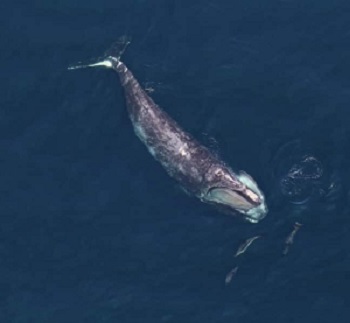
Enviro’s Lukewarm Reception For Canada Modifying Right Whale Protections
The Animal Welfare Institute has responded to the Canadian government’s recent decision to modify right whale protections, specifically concerning how they affect lobster and crab fishers. On the one hand, the institute welcomes and applauds the government commitment to “Whale Safe” ropeless fishing gear. However, it does not accept the promotion of weaker rope lines as a long-term solution for entanglement. >click to read< , with a link to the policy they oppose, unreasonably. 18:06
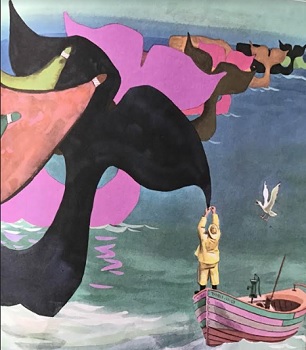
Right Whale – Wrong Data
This graph mistake turns this whole whale lobster debate on it’s head. They gauged their whole extinction claim on a population number that they figured from a birthrate curve overlaid on a population graph so naturally it looks like tons of whales are suddenly dying when the birthrate went down starting in 2010, one year after the record calving of 39 baby whales. 20 whales born in 2010, plus 7 more, attributed to their downward tracking line meant 27 whales died. Oddly nobody noticed this ridiculous mathematical blunder and for ten years they have been charging around wondering who was killing all these whales. >click to read< 19:29
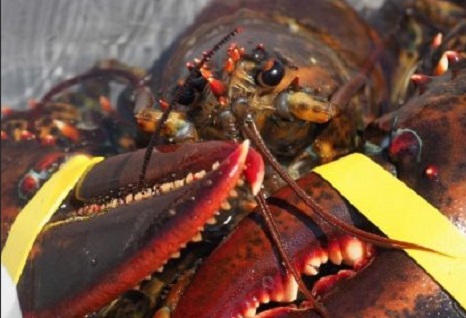
Canada: History shows a path to resolve lobster fisheries dispute
As we reflect on recent violence in Nova Scotia over the lobster fisheries, it’s important to know if there are any precedents around the core issues and if prior instances can help guide us now. The case of the Saugeen Ojibway of the Great Lakes provides some particularly useful insights to help reach a settlement to the lobster fisheries dispute. Conflict between Indigenous peoples along the Great Lakes and the state has been around since the rise of non-Indigenous commercial and sport fishing around the 1830s and 1840s. In the 1990s, things came to a head,,, >click to read< 08:29
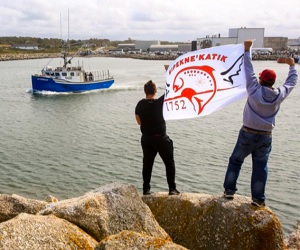
First Nation has right to catch lobster, but N.S. laws mean they can’t sell it. New court fight targets ‘economic racism’
A First Nation trying to establish its own self-governed lobster fishery is setting its sights on the Nova Scotia government. “We’ve always said that we’re going to hold everyone accountable for their actions,” Sipekne’katik Chief Mike Sack,,, “This is just finally coming to the forefront.” “We are more resolved than ever to bring this to court, as we have lost so much in the face of the violence and economic racism aimed at us from the commercial fishery throughout the fall,” >click to read< 08:10
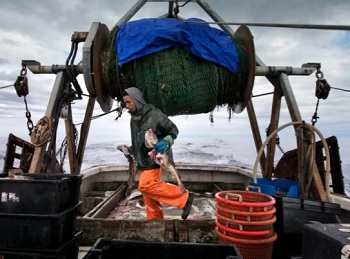
Georges Bank haddock – Canada, U.S. agree to slash quota by 45%
Canada and the United States have agreed to a large quota cut for the haddock stock that straddles their shared fishing grounds on Georges Bank south of Nova Scotia. Committee records from 2019 and 2020 show the Georges Bank haddock population is still healthy, but on the decline as the “extraordinarily strong” population hatched in 2013 is caught or dies off. COVID-19 curtailed or cancelled scientific surveys on Georges Bank in 2020. “We have no analytical model on haddock, had no U.S. surveys,,, >click to read< 21:05
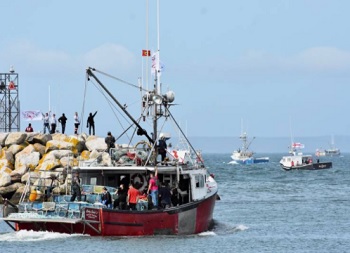
Failed policies, decisions on the fly: How the moderate livelihood fishery file blew up
Documents obtained through a freedom of information request show the federal Fisheries Department knew that 21 years of kicking the moderate livelihood issue down the election cycle had resulted in there being little rule of law on St. Mary’s Bay. The feds knew that the bay had become a pressure cooker as two communities were pitted against one another over a limited resource. When the top blew off, they turned to coming up with new policy on the fly while seeking a daily scorecard on evolving public opinion. “This is about a culture (in Ottawa) that would rather avoid any conflict at all,” said Thomas Isaac, an aboriginal rights lawyer who has served as British Columbia’s chief treaty negotiator,,,>click to read< 13:49

New DFO regulations, 30 major commercial stocks have been identified for rebuilding
Canada is putting into law a requirement that it rebuild depleted commercial fish stocks, starting with 17 stocks that include Atlantic cod off Newfoundland, spring spawning herring in the Gulf of St. Lawrence and three Pacific salmon stocks. They account for more than half the 30 major commercial stocks identified for specific protection in amended Fisheries Act regulations published Jan. 2. >click to read< 11:33
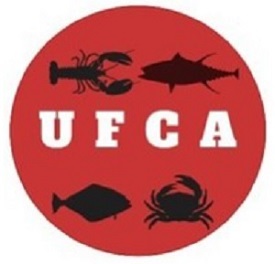
Atlantic Canadian commercial fishing industry calls for clear regulatory oversight for all fisheries
The Unified Fisheries Conservation Alliance (UFCA), a newly formed alliance of commercial fishery stakeholders, is calling on the Government of Canada to establish clear, lasting, responsible, regulatory oversight for all fisheries – commercial, food, social, and ceremonial. Established in Nov. 2020, the UFCA represents thousands of multi-species commercial fishermen, fishery associations, and associated businesses from across Atlantic Canada and its membership is growing. “It is essential that every community, association and fisherman in the Atlantic fishery have certainty as to the rules they abide by. Clear rules, regulations, compliance, and enforcement are needed.” >click to read< 07:30
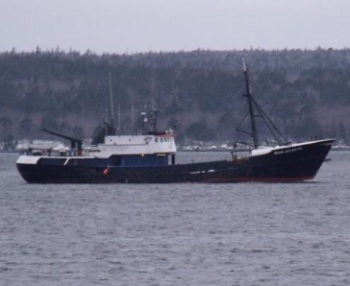
Lobster: the last, best fishery – Stocks are healthy, but why?
In the early 2000s, while he was working on one of Clearwater Seafoods’ four offshore lobster boats in Lobster Fishing Area (LFA) 41, Frank – not his real name – was deeply impressed by the incredible lobster catches, and the incredible size of the lobsters. Frank tells the Halifax Examiner that at the time there hadn’t been a lot of lobster fishing in LFA 41, and it wasn’t until 2007 that Clearwater obtained the last of its eight licences, which gave it a  monopoly on offshore lobster. The boat Frank was on would fish with 27 strings of gear, and each of those had 125 traps for a total of 3,375 traps. They would fish close to the 50-mile line, which divided the offshore from the inshore fishery. Frank remembers when on a single day in the fall of 2005, they landed 28,000 lobsters. Part 1. >click to read< Part 2 – 11:05
monopoly on offshore lobster. The boat Frank was on would fish with 27 strings of gear, and each of those had 125 traps for a total of 3,375 traps. They would fish close to the 50-mile line, which divided the offshore from the inshore fishery. Frank remembers when on a single day in the fall of 2005, they landed 28,000 lobsters. Part 1. >click to read< Part 2 – 11:05






